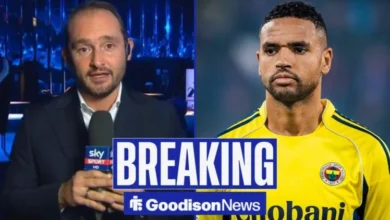Everton Takeover: Kieran Maguire Discusses Possibility of Qatar Disrupting the Deal…
Kieran Maguire Discusses Possibility of Qatar Disrupting the Deal...

Everton Takeover: Kieran Maguire Discusses Possibility of Qatar Disrupting the Deal…
Kieran Maguire, a renowned football finance expert, recently delved into the complex dynamics surrounding the potential disruption by Qatar of a high-profile football club acquisition. Maguire, known for his insightful analysis, addressed the multifaceted nature of such international deals in the context of geopolitical influences and financial regulations.
Qatar’s growing prominence in global sports, notably through its sovereign wealth fund investments and the hosting of the 2022 FIFA World Cup, positions it as a powerful player in the football world. The country’s strategy often involves leveraging sport for soft power, enhancing its global image, and fostering diplomatic relationships. This approach could significantly influence its decisions regarding the disruption or facilitation of international football club transactions.
Maguire pointed out that Qatar might consider disrupting a deal if it perceives a strategic advantage, such as asserting its dominance in the sports domain or countering moves by rival nations. Such a disruption could be executed through direct investment competition, leveraging political influence within football’s governing bodies, or through media campaigns via outlets owned or influenced by the state.
Furthermore, Maguire highlighted the regulatory aspect, noting that any Qatari attempt to disrupt a deal would have to navigate complex international financial regulations and anti-competitive laws. The intricacies of such legal frameworks mean that even a state with significant resources must tread carefully to avoid diplomatic fallout or legal repercussions.
The economic implications are also significant. Maguire elaborated that the football club market is highly valuable, and any move by Qatar that appears to destabilize the market could deter future investors, affecting the sport’s financial health globally.
In conclusion, while Qatar has the capability to influence major international football deals, the decision to do so would involve careful consideration of the potential diplomatic, legal, and economic repercussions. Maguire’s analysis provides a nuanced view of the strategic calculations behind such moves, emphasizing the interconnected nature of sports, finance, and international relations.



